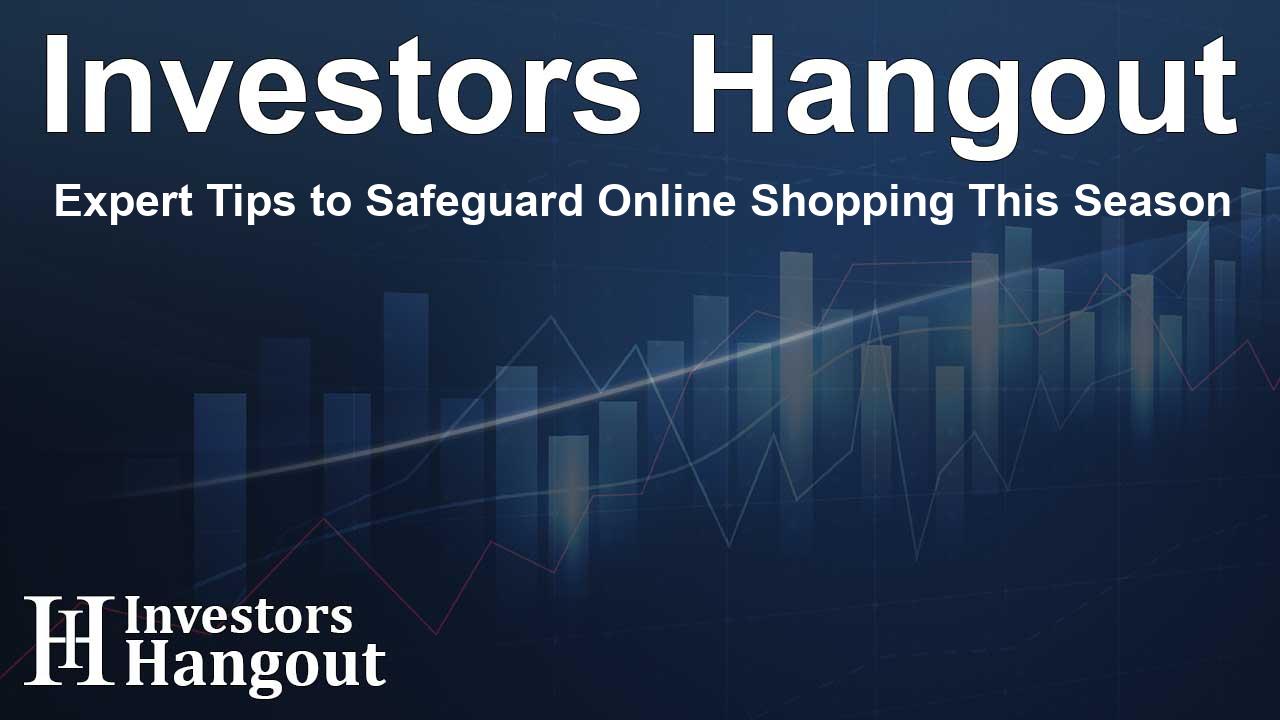Expert Tips to Safeguard Online Shopping This Season

Understanding the Risks of Online Shopping
As we approach the holiday season, it’s crucial to recognize the dangers lurking in cyberspace. A recent report indicates that as online shopping surges, so does the risk posed by digital fraudsters. Scammers are getting more sophisticated, utilizing stolen logos and carefully manipulated websites to deceive unsuspecting consumers into making purchases that could lead to identity theft or financial loss.
Who Is at Risk?
Everyone who shops online is potentially at risk, particularly if they are not vigilant about the websites they engage with. According to expert security analysts, scammers often create fake shops that appear legitimate but are designed to steal personal information or money. It's essential to be aware of these threats, especially during busy shopping periods like the holidays.
Key Findings from Recent Cybersecurity Tests
Several top-tier cybersecurity products were tested against a variety of fraudulent websites. Findings revealed that only a select few offered substantial protection against these fake online retailers. Essential products that performed well include well-known names such as Avast, Norton, and McAfee. Each of these solutions was examined for their effectiveness at identifying deceptive websites before a purchase is made.
How to Identify a Fake Online Store
Many online scams can be avoided through careful scrutiny. When shopping, look for signs that might indicate a scam. These include unusual domain names, a lack of contact details, or inconsistencies in branding. Genuine retailers usually maintain clear communication channels and consistent branding across their platforms.
Common Red Flags to Watch For
- Unrealistically low prices, often 70-90% below standard market value.
- Poorly designed websites with spelling mistakes or low-quality images.
- Suspicious payment methods that do not offer buyer protection.
Taking Precautions to Stay Safe
To protect yourself while shopping online, adopt a proactive digital safety strategy. Start by checking your bank statements frequently for any unauthorized transactions. Consider setting up alerts with your financial institution to receive notifications of recent purchases. This immediate reporting can significantly reduce the damage caused by potential fraud.
Utilizing Cybersecurity Tools
Employing cybersecurity solutions is another layer of protection. Features such as VPNs, firewalls, and identity theft monitoring services can provide security while you browse. Some of the top-rated tools include NordVPN and Webroot, known for their comprehensive protection against various online threats.
Conclusion: Online Safety is a Collective Effort
In today’s digital age, awareness is key. As we enter this festive shopping season, being educated about the types of scams out there can mean the difference between a happy holiday and a regrettable experience. Understanding how to spot red flags and protect oneself can ensure a safer shopping experience and ultimately lead to smarter consumer habits.
Frequently Asked Questions
What is a fake shop?
A fake shop is a fraudulent website designed to mimic a legitimate online retailer, aiming to steal user information or funds.
How can I protect myself while shopping online?
Always verify website authenticity, check payment security, and look out for suspicious signs such as extremely low prices.
Which cybersecurity products are effective against fake shops?
Top-performing cybersecurity solutions include Avast, AVG, McAfee, Norton, and Webroot, among others.
What should I do if I suspect I've been scammed?
Report the fraudulent transaction immediately to your bank or credit card provider and monitor your financial statements closely.
How often should I check my bank statements?
It’s advisable to check your bank statements regularly and set up transaction alerts to catch any unauthorized activity as soon as it occurs.
About Investors Hangout
Investors Hangout is a leading online stock forum for financial discussion and learning, offering a wide range of free tools and resources. It draws in traders of all levels, who exchange market knowledge, investigate trading tactics, and keep an eye on industry developments in real time. Featuring financial articles, stock message boards, quotes, charts, company profiles, and live news updates. Through cooperative learning and a wealth of informational resources, it helps users from novices creating their first portfolios to experts honing their techniques. Join Investors Hangout today: https://investorshangout.com/
Disclaimer: The content of this article is solely for general informational purposes only; it does not represent legal, financial, or investment advice. Investors Hangout does not offer financial advice; the author is not a licensed financial advisor. Consult a qualified advisor before making any financial or investment decisions based on this article. The author's interpretation of publicly available data shapes the opinions presented here; as a result, they should not be taken as advice to purchase, sell, or hold any securities mentioned or any other investments. The author does not guarantee the accuracy, completeness, or timeliness of any material, providing it "as is." Information and market conditions may change; past performance is not indicative of future outcomes. If any of the material offered here is inaccurate, please contact us for corrections.